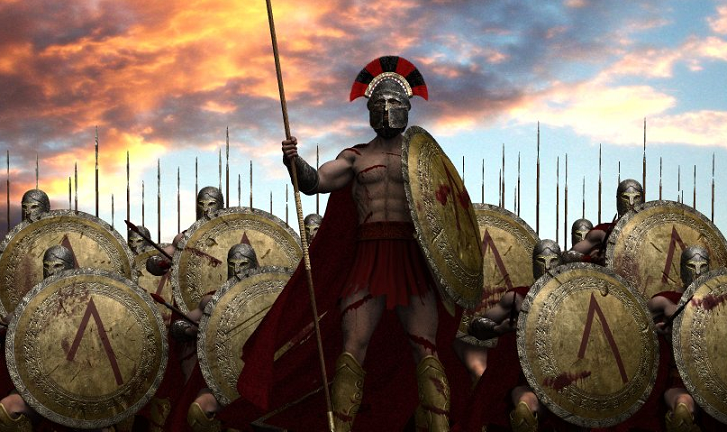
Welcome to John’s Historically Inaccurate Ramblings. Today, we’re talking about the poster-boys for what everyone thinks of Ancient Greece, the Spartans. We’ve all heard the story, first in a graphic novel, then in a Zack Snyder movie, then in the ensuing internet memes. How the brave Leonidas led the 300 Spartans to defiantly stand against the Persians, who sought to swallow all of Greece. But there is sadly little evidence to support this view of the Spartans being near-superhumans that practiced eugenics and had a martial society.
Sparta was known for laconic witticisms and having beautiful women. Helen of Troy was plucked from King Menelaus of Sparta’s court by Aphrodite and brought before Paris, so said Homer. In fact, the Battle of the 300 Champions in 546 BCE seems to suggest Argos had much better warriors. Two soldiers from Argos had left the battle as a single, wounded Spartan soldier committed suicide over returning to his city in shame. By sixth century BCE, Sparta had become a political powerhouse in its ability to politically vassalize and form a hegemony over the much of the peninsula, apart from Argos and the far Northern end.

Ah, but what of the agoge – the school that boys as young as seven were brought into and molded into warriors without equal? While the Spartans did employ such an institution to train the young of their political elite class, the school seemed to exist more for the purpose of training perfect citizens over perfect soldiers. Poetry, reading, writing and dancing were all parts of the curriculum. Over time, more extreme courses were eventually added after Thermopylae, as a means of keeping up appearances. It is argued this perhaps negatively affected the landowning class, as less offspring becoming full citizens meant more land consolidation. This shrinking nobility meant it would fall to the second class of Spartans, the Perioeci, to pick up the slack.
With all this evidence before us, we can confidently say that perhaps the Spartans weren’t all they were cracked up to be. At the sacrifice of a king, they had the narrative and wrote themselves as unyielding warriors. But the price resulted in the state being a pale shadow by the era of Rome’s conquests.








